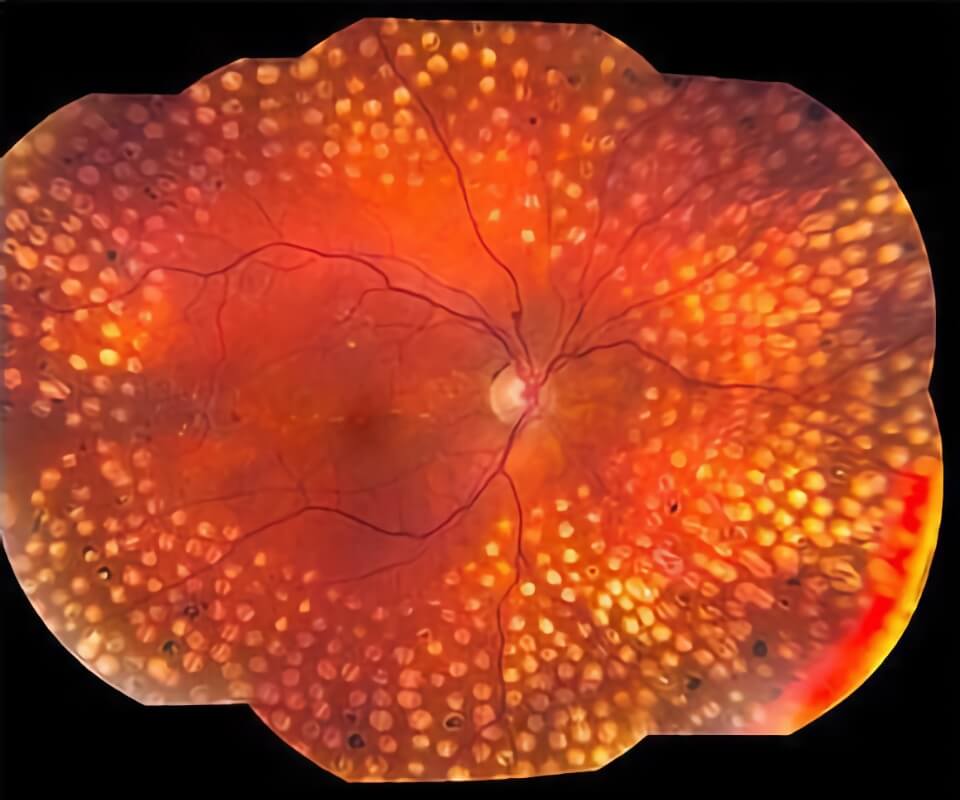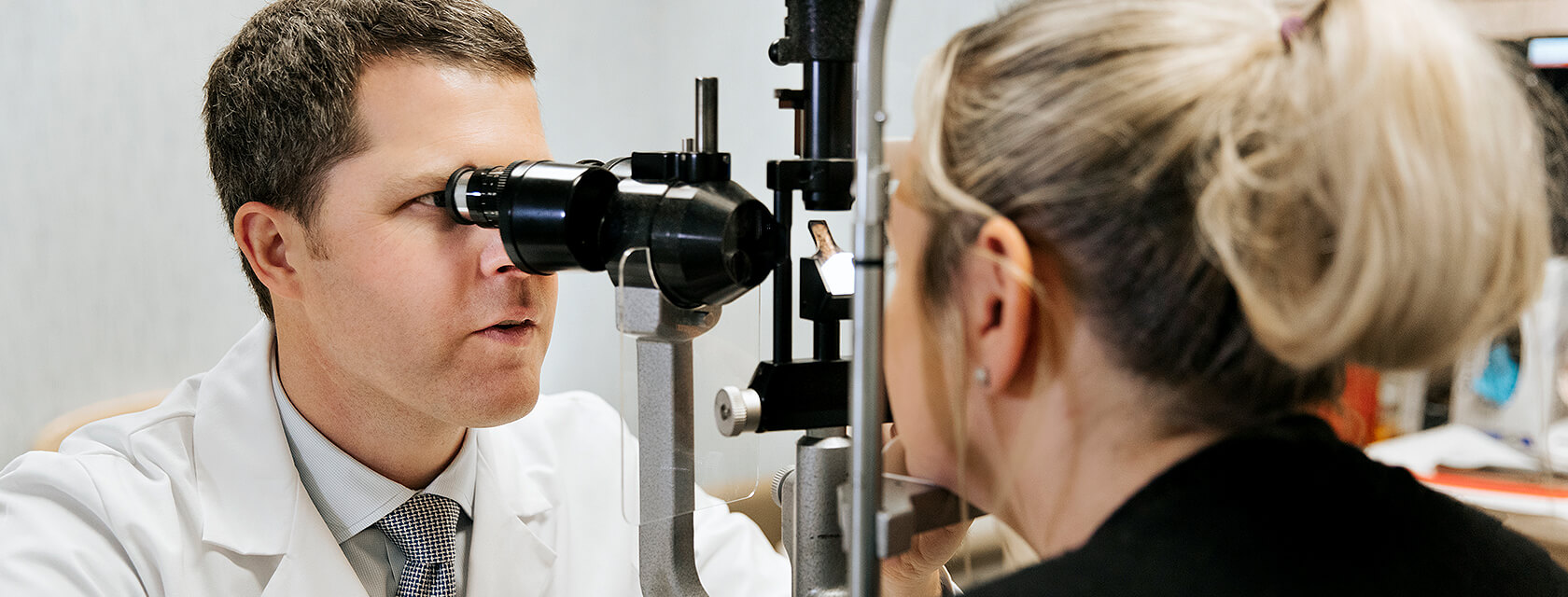Before getting started, read our Retina 101 page.
What is retinal laser surgery?
Laser is an elegant way of treating a variety of retinal conditions, and has been used for several decades with excellent outcomes. A laser is a powerful, concentrated beam of light that can be focused very precisely on the targeted tissue. Retinal lasers have been specially designed to be able to pass through non-retinal tissue (the lens and cornea) without damaging them. Most retinal laser procedures rely upon absorption of the energy by pigmented tissue to destroy diseased tissue or to create a barricade around pathology.
What retinal diseases are treated with laser surgery?
Retinal Tear
Laser is used to create tiny burns around the retinal tears. The healing that occurs after the laser burns essentially spot-welds the retina down and prevents the tear from causing a retinal detachment. If not treated, fluid can leak through these tears and cause the retina to detach, leading to vision loss.
Macular Edema
Most commonly seen in Diabetic Retinopathy and Retinal Vein Occlusions. Macular edema often develops because fluid and blood leak from damaged blood vessels near the center of the vision. Very gentle laser is used to seal up the leaking blood vessels and can help prevent vision loss.
Retinal Neovascularization
Most commonly seen in Diabetic Retinopathy, Retinal Vein Occlusions, and Retinal Artery Occlusions. In these conditions, because of the lack of normal amounts of oxygen in the eye, abnormal blood vessels can grow inside the eye (neovascularization). These new blood vessels are very problematic because they tend to bleed and can cause severe vision loss or blindness. Because of the severe nature of retinal neovascularization, a more extensive laser treatment, called Panretinal Photocoagulation, is needed. Laser treatment is then scattered into many points (oftentimes over 1,000 laser spots) in order to stop the abnormal blood vessels from growing.

Retinal disease is primarily treated using a thermal laser. The light energy is absorbed by specific tissue at the back of the eye and is converted to heat. The heat causes a very small area of damage to the retina. As the eye heals from this small area of damage the scar helps to correct the underlying retinal disease. Thermal lasers can be used to seal retinal tears, close leaking blood vessels or to break down abnormal tissue or blood vessels.
Laser surgery is non-invasive and is commonly performed in the office. The laser can be delivered to the retina in a number of different ways depending on what part of the retina needs to be treated. A microscope and lens system, similar to the one used to examine your eye is often used. Alternatively an indirect delivery system consisting of a laser system mounted on the retinal surgeon's head can be used.
- Your pupil(s) will be dilated
- Local anesthetic (numbing drops) will be placed on your eye
- If an indirect laser is used you will be positioned so that you're lying on your back at a comfortable angle
- If a microscope is used, a special contact lens will be used to hold your lids apart
- During treatment, you will see bright (often green) flashes of light
- The treatment usually takes a few minutes or longer, depending on the disease being treated
Laser treatment is almost always painless. Most people find the bright lights more uncomfortable than the actual energy from the laser. If you need a more extensive laser, sometimes you will have discomfort during the laser treatment.
- Because your eye(s) will be dilated, someone should accompany you.
- Take your eye drops and all medications as usual.
- Bring a dark pair of sunglasses to wear after your treatment
- Pain: Most patients have little if any pain following retinal laser surgery. Patients who require more extensive laser may have an ache inside the eye or around the eye. If you have discomfort after the surgery, rest and take Tylenol, ibuprofen, or another over the counter pain reliever.
- Blurred vision: It is common to have blurry vision for the first few hours after laser surgery.
- Activity: For some laser you need to restrict your activity. Your doctor will instruct you about any activities that you should limit.
- Call immediately if you are experiencing increasing pain or decreased vision.

